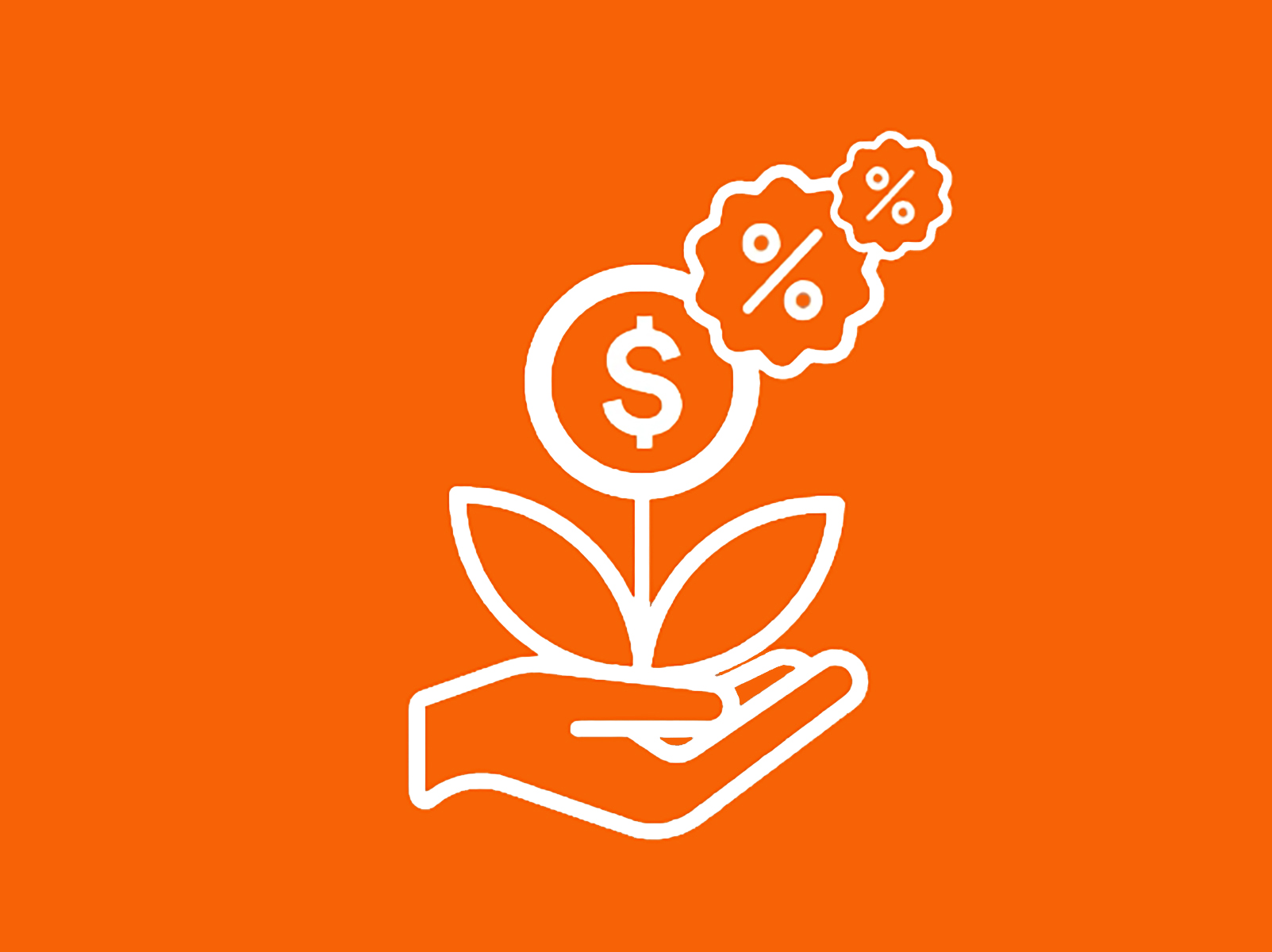A beginner's guide to GICs
In a rapidly changing economy, few things are guaranteed. This might help explain why more people are flocking to GICs as a safe place to grow their money.
Higher interest rates can mean higher costs to pay off debts such as mortgages and lines of credit, but it also means you can earn a higher rate on your savings.
If you don't know much about GICs, or are curious about how GICs work, here's a guide to help you understand them.
What's a GIC?
A GIC is a Guaranteed Investment Certificate (called “Guaranteed Investment" at Tangerine). It's called this because the money you put in a GIC is guaranteed — you can't lose your money. And in a fixed rate GIC, the most common kind, the interest rate at which you invest stays the same throughout the term. At maturity, you're guaranteed to get your principal sum plus the interest earned.
GICs can range from shorter terms like 30, 60 or 90 days to a longer term like a year, or multiple years. Generally, the longer the term, the higher the interest rate.
What's the catch?
There's no catch, just a word of caution. Remember that with most GICs, your money can't be redeemed, meaning it's locked away for the entire term that you agreed to. So, if you're eyeing a three-year GIC, for instance, but you think you might need that money sooner, consider a shorter term, or a product where the funds are more accessible, such as a savings account.
How do GICs work in Canada?
In simple terms, you're basically lending the financial institution money, and they pay you back with interest at the end of the term. As an additional guarantee at Canadian banks, the money you put into a GIC, plus the interest, is covered by the Canada Deposit Insurance Corporation (CDIC), up to $100,000 per account.
Your financial institution determines the interest rates, which are influenced by the Bank of Canada's interest rate policy and the rate environment. Each financial institution will have options for calculating and paying interest based on the GIC you choose.
For example, if you invest $1,000 in a GIC with a 5.00% annual interest rate for a three-year term, at the end of the first year, it grows to $1,050, and at the end of the second year, $1,102.50. When the term is due, it has grown to $1,157.63.
What happens at the end of the term?
You can cash out or reinvest into a new GIC, based on the maturity options you've chosen.
Will I be taxed on my GIC earnings?
GIC earnings are considered to be a regular income. However, the earnings may not be taxable, depending on the type of GIC account you have.
For example, interest income earned in non-registered GICs is taxable. However, you can have a GIC account within a TFSA or an RSP, which would make it tax-sheltered or tax-deferred, respectively. So the interest earned on the principal is not taxable in a TFSA, and is only taxed when withdrawn from an RSP — assuming you don't contribute more than your limits for those plans*.
GIC rates as high as [[GIC.RATE.MAX]]*
Choose a term option that meets your needs
Should I invest in GICs?
It depends on what your goals are. Here are some questions to consider:
- When do I need to have access to the money?
- What do I need the money for?
- What's my risk appetite?
When do you need access to the money you're investing? Will you need it in the near term, or can you put it away for longer?
Let's say you make a deposit in a regular, non-registered savings account. You earn a bit of interest and have the benefit of liquidity — meaning you can take out the money whenever you like. In the event of an emergency, you can make a withdrawal.
In another example, let's say you plan to buy a house, a car, or a boat in a year. You decide you don't need this money for the next 12 months, so you put it in a GIC. It's a safe investment that guarantees your principal, so it's low risk. And since you won't need access to that money for the next 12 months, you take advantage of a guaranteed interest rate for that term.
It always starts with what you're trying to achieve and how much risk you're willing to take on. As you consider other kinds of investments, such as stocks, the risk may be higher, but the potential return may also be higher. When you identify your goals, then you can determine what kind of savings or investment option is right for you.
Don't start here: "Shall I invest in a GIC, or should I invest in a mutual fund or the stock market?"
Start with these questions instead: What are my goals? What is my risk tolerance? And what is the timeframe I'm working with?
So, three things: goals, risk tolerance and timeframe.
How do I make the most of fixed GIC rates?
GIC laddering is often cited as a strategy to make the most of fixed rate GICs. It's a way of capturing the benefit of interest rates that change over time, even though each GIC locks in a particular rate. If you spread your investment over multiple GICs with different terms, you continually have a maturing investment, and you can decide how to reinvest to make the most of current rates. Staggering the maturity dates of your GICs is a good strategy to take advantage of a rising interest rate environment.
Again, answering the guiding questions above can help you decide if laddering makes sense for you.
And that's the tea on GICs!
*TFSAs and RSPs have annual contribution limits, and you'll want to stay within your limits to fully experience the tax benefits.


